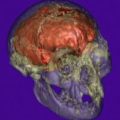
Obesity is more prevalent among African Americans than among Caucasians. In a retrospective study of 447 African American subjects published in The American Journal of Clinical Nutrition, compared data collected at birth with measurements of adiposity taken in early adulthood. Among 9 potential independent birth variables, 3 were strongly associated with adult obesity: first-born status, female sex, and the mother’s prepregnancy body mass index.
The potential independent birth variables included sex, birth weight gestational age, placental weight, maternal prepregnancy body mass index (BMI), maternal pregnancy weight gain, maternal education, presence of the father in the household, and the number of adults living in the household at enrollment and birth order. Weight and height measurements were taken when they were between the ages of 18.0 and 22.9 weeks.
Twelve percent of the risk for obesity could be accounted for by first-born status, female sex, and mother’s prepregnancy weight, the greatest effect being due to first-born status. Most of the variability in fatness was associated with unmeasured factors — either those present at birth which were not measured, or postnatal lifestyle factors such as diet and physical activity. An accompanying editorial by Dietz emphasizes that, of the 3 identified risk factors for obesity, only the mother’s prepregnancy weight is modifiable. It is important that evidence-based preventive strategies aimed toward establishing healthy lifestyles be focused on modifiable risks.










Comments are closed.